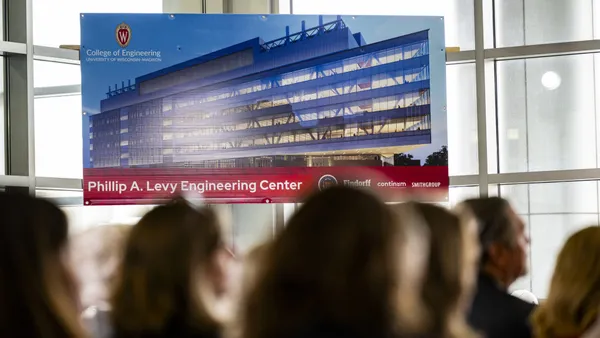Dive Brief:
- Construction employment grew by 14,000 jobs from June to July, finally taking back some of the 27,000 jobs lost since April and pushing industry employment up 3.3% year over year, according to the Bureau of Labor Statistics.
- Construction wages have also grown 3% since July 2015 to an average of $28.20 per hour — 10% higher than the combined average pay rate of all other private sector industries, according to a BLS analysis by the Associated General Contractors of America.
- As wages and jobs rose in July, construction unemployment clocked in at 4.5%, a shade lower than the national unemployment rate (4.9%) and a 16-year industry low.
Dive Insight:
According to BLS data, nonresidential specialty trade contractors saw the most month-over-month growth, adding 8,900 jobs (3.3%) since June, while residential specialty trade contractors had the biggest year-over-year surge at 5.1% (90,700 jobs). In fact, the remaining BLS categories of residential building (m/m: 200 jobs; y/y: 4.3%), nonresidential building (2,600; 2.3%) and heavy/civil engineering (1,900; 0.1%) all showed month-to-month increases and year-over-year gains. Total construction employment reached 6,652,000 in July, which is 215,000 higher than July 2015.
Associated Builders and Contractors Chief Economist Anirban Basu said in a press release that this month's BLS data reflects a softening in the residential sector but, at the same time, confirms a still-strong nonresidential recovery. However, he said low unemployment and rising wages indicate that the increase in jobs is stretching out the already-thin supply of skilled workers. This, Basu said, could result in rising prices for consumers as builders pass on the increased cost of labor.
Average weekly hours worked also increased to 39.2, and the AGC said this fact indicates that employers are looking to make up the labor shortage in part by demanding their existing employees work more hours. "Several indicators show that there is still plenty of construction work available, but the shortage of experienced workers is growing ever more acute," AGC Chief Economist Ken Simonson, said in a release.
ABC CEO Mike Bellaman recently told Construction Dive that employers need to show the much-needed younger demographic how "technical and innovative" the construction industry can be in an effort to draw them into the workforce. He added that industry leaders must find a way to leverage the technological prowess of the younger generation while still utilizing the field expertise of older workers, creating a company structure that combines the best of both groups.













